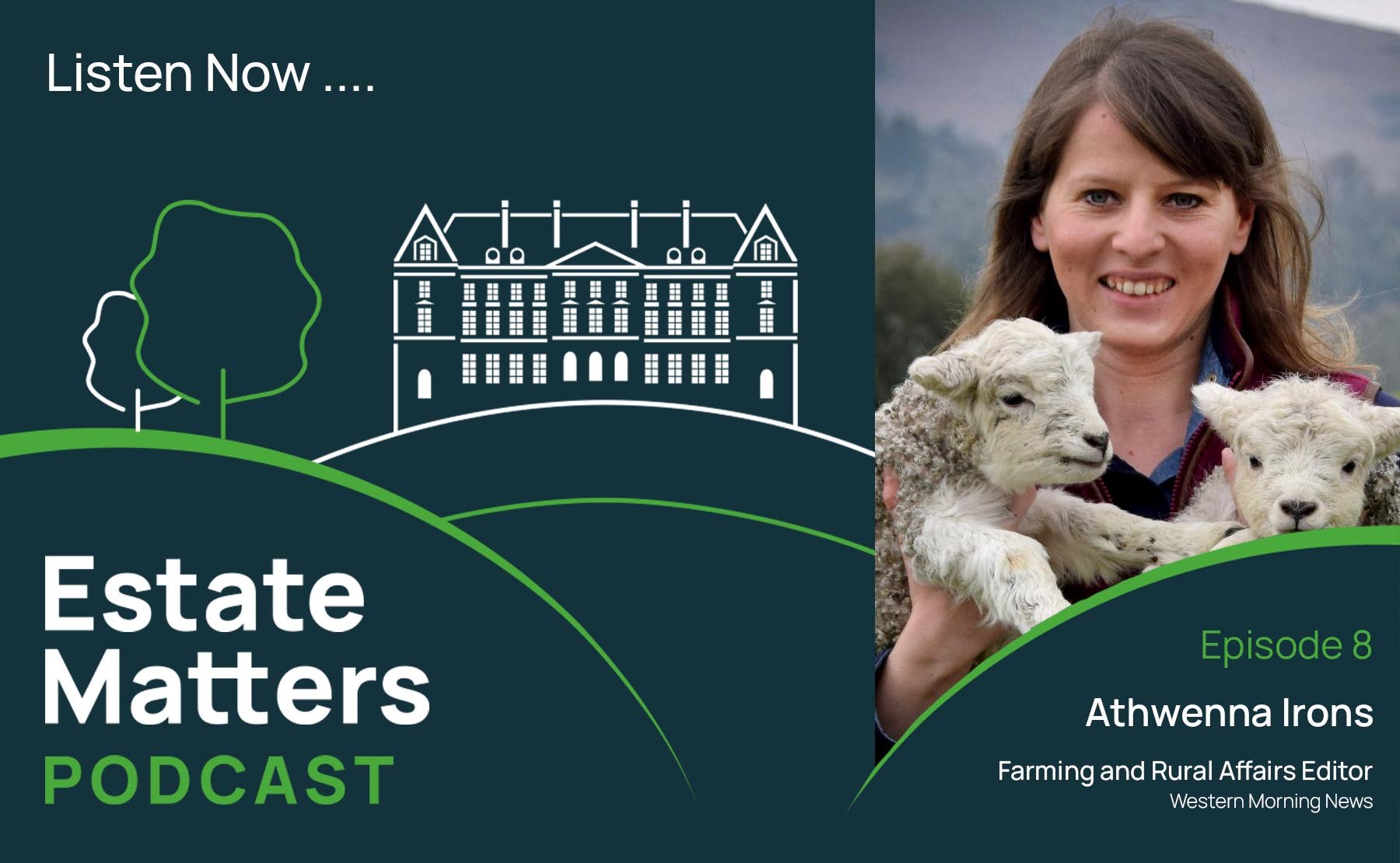Estate Matters Episode 8: Athwenna Irons, Western Morning News | The benefits of achieving coverage in traditional print media
Regional newspaper farming editor Athwenna Irons describes the challenges for agriculture as the countryside undergoes major change, in the latest episode of Estate Matters.
Athwenna is the Farming and Rural Affairs Editor at the Western Morning News – South West England’s only regional daily newspaper – where she has worked since 2013. She says a lack of clarity over vital financial support for farming following Brexit, is having a negative effect, leaving many farmers frustrated.
“We’re getting a little more certainty now about how these new payments are going to look,” she tells podcast host Anna Byles. “The Sustainable Farming Incentive has opened for applications and there is Countryside Stewardship,” she adds.
“But at the same time the Basic Payment Scheme is still reducing and there will be a 20% reduction in what farmers receive at the end of the year. That’s massive – they just want a bit of certainty.”
Farmers are working to counter some of the challenges they face by communicating more successfully with consumers, Athwenna says, helped by a new generation working in agriculture who are more comfortable with social media and other promotional tools.
But she and KOR’s Senior Content Writer Philip Bowern, formerly the Editor of the Western Morning News, agree that reaching audiences through print remains important for farmers and land managers. A combination of original content produced by specialist journalists like Athwenna and well-written press releases from public relations consultancies like KOR is crucial to help farmers, food producers and land managers tell their stories.
A decline in newspaper sales and a big shift to online journalism has had a significant impact on news in print, which has faced its own challenges, including a reduction in the number of journalists, particularly in local and regional publications.
It means that print titles now rely, to a greater extent than ever before, on well-written copy and pictures, provided by communications consultancies like KOR. Clients who see the benefit of their stories being told in the press and online find it easier to secure coverage using communications professionals who know how to write for identified audiences and have close contacts in the media.
Philip says: “It was once a matter of some pride among journalists that you didn’t use PR agency copy.” But he said staff cuts in the media means professional PR agencies are filling the gap.
“There is no shame for newspapers using copy from a source they trust, dealing with an issue they know is important to their readers,” he adds.
Athwenna explains that, despite the challenges, she has built up a large number of contacts across all farming sectors in the South West, many of whom have become friends because of the trusted relationship they share. She says that farmers retain the broad support of the public, who rely on the food they produce and admire the land they manage.
She said:
“Farming for the Western Morning News is such a flagship topic. I’m really proud to be able to champion that, though our weekly pages, the series of articles that we have done and the supplement we produce every month, and I think despite the challenges…we are still out there in the farming community.”
The message is clear for farmers, food producers and land managers - telling positive stories about an industry vital to all of us helps to educate, inform and inspire consumers, and bring influence to bear on politicians and industry leaders.

